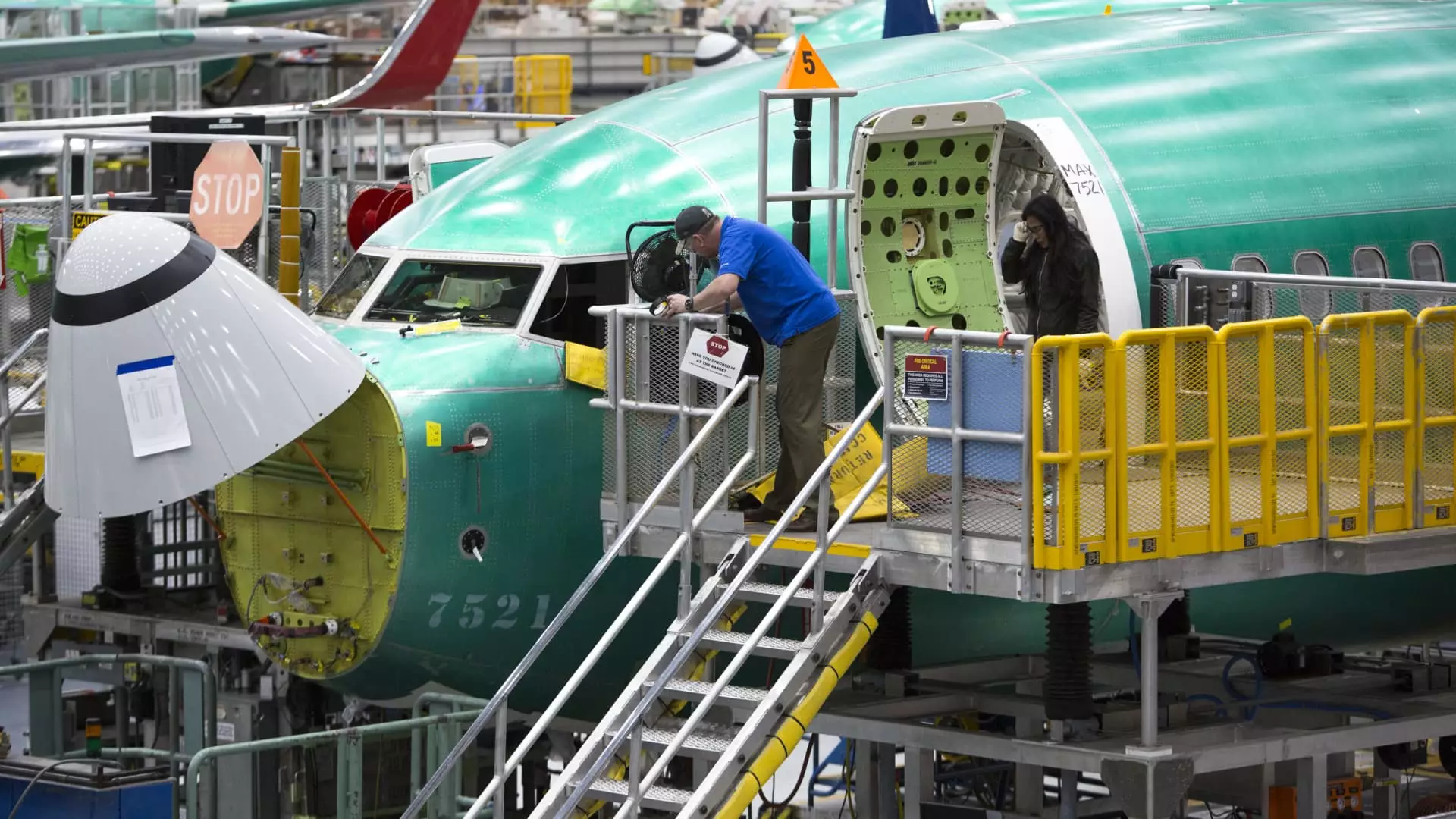On a significant Thursday, Boeing employees find themselves at a critical juncture as they cast their votes on a newly proposed labor contract. The decision holds the potential for substantial ramifications, not just for the workers but also for Boeing’s production capabilities and overall market stability. The stakes are especially high, given the current context of the aerospace industry, where Boeing is striving to rebound from a series of operational setbacks and public scrutiny.
This tentative contract, negotiated collaboratively with the International Association of Machinists and Aerospace Workers (IAM), promises substantial wage increases and enhanced benefits, including healthcare and retirement provisions. Notably, the agreement includes a commitment from Boeing to manufacture its next aircraft within the Seattle area, underscoring the company’s intent to bolster local job security. However, this decisive vote may trigger a substantial labor strike if the workers choose not to ratify the contract, further complicating Boeing’s efforts to restore its production momentum.
At the helm of this situation is CEO Kelly Ortberg, who is navigating his new leadership role amidst financial and reputational challenges for the company. Having been in his position for just over a month, Ortberg faces the skepticism of employees as he attempts to stabilize production processes and address quality concerns. Recent incidents, such as a notable door-panel blowout earlier this year, have intensified calls for more significant reforms and improvements in safety protocols.
In his communications with staff across the Renton and Everett manufacturing facilities, Ortberg has acknowledged employees’ strong reactions to the proposed contract, emphasizing the need for unity to secure a prosperous future. “I know the reaction to our tentative agreement with the IAM has been passionate,” Ortberg expressed, highlighting the emotional weight of the decision at hand. His plea for patience in overcoming historical frustrations suggests a challenging path ahead for both management and labor.
The IAM represents approximately 33,000 Boeing factory workers in Washington and Oregon and had initially aimed for a more ambitious raise of 40%. The finalized offer of a 25% wage increase aligns with trends across various industries where union negotiations have recently resulted in significant pay hikes, such as those seen in the automotive sector. IAM District 751 President Jon Holden has conveyed a pragmatic approach, urging workers to consider the proposed agreement carefully. “We have achieved everything we could in bargaining, short of a strike,” he stated, encapsulating the delicate balance the union must navigate.
Furthermore, top pay for IAM members could reach an impressive $57.43 per hour with this new contract, marking a substantial financial improvement for many workers. With the average annual machinist salary projected to rise from $75,608 to $106,350 over the next four years, the implications of both acceptance and rejection of the contract are profound. If the workers opt for a strike, it could complicate Boeing’s recovery strategy and deepen existing frictions between labor and management.
As polls close, the potential outcomes of the workers’ decision loom large. If two-thirds of the workforce chooses to strike following a rejection of the contract, work stoppages could commence shortly after midnight. Conversely, should this threshold not be met, the contract will automatically go into effect. Such intricacies further amplify the emotional high stakes surrounding the vote—employees are aware that their decision will not only impact their livelihoods but also the future trajectory of Boeing.
Ortberg’s insights into Boeing’s current business climate reveal an acknowledgment of past missteps, suggesting that resilience and collaboration are vital for overcoming present-day challenges. A labor strike could derail recovery efforts, driving additional wedges between the company and its stakeholders.
As Boeing employees place their votes, the implications extend far beyond immediate financial gains or losses—they touch upon the fundamental relationship between labor and management within a company striving for redemption. Whether the contract passes or faces rejection, this moment will undoubtedly shape Boeing’s future, influencing its operational dynamics, employee morale, and public perception in a highly competitive industry landscape. The resolve displayed by workers, union leaders, and management alike will be essential in determining the path forward for this aerospace giant.


Leave a Reply